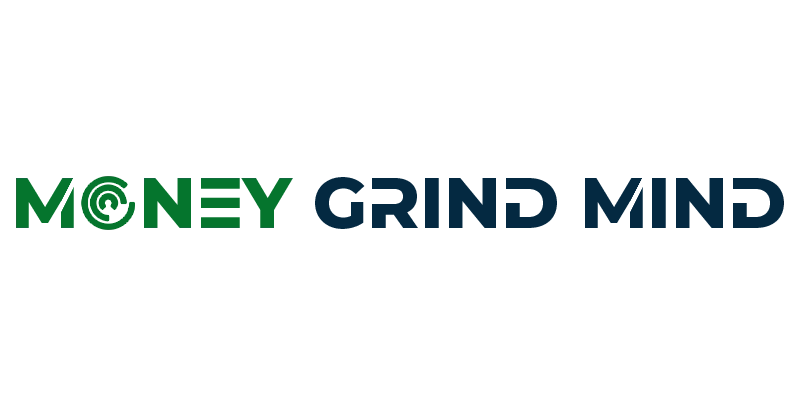Are you looking for project topics on accounting education? Perhaps you’re writing a thesis or you’re just an educator seeking fresh ideas in various project topics on accounting education, well I got exactly what you’re looking for.
In the dynamic realm of finance and business, accounting education serves as the cornerstone for nurturing adept professionals who can navigate the complexities of financial management, reporting, and analysis.
Whether you’re an educator seeking fresh ideas for engaging project topics or a student aiming to delve into the intricacies of accounting education, this article presents a comprehensive list of 20 captivating project topics that merge theoretical insights with real-world applications. Let’s embark on this enriching journey of discovery.
- List of the 20 Best Project Topics On Accounting Education
- The Crucial Role of Accounting Education
- How Do You Select Accounting Research Topics?
- I. Enhancing Accounting Pedagogy
- II. Current Trends in Financial Reporting
- III. Behavioral Accounting and Ethics
- IV. Innovations in Auditing Education
- V. Accounting Education in the Digital Era
- Conclusion: Nurturing Future Accountants Through Engaging Projects
List of the 20 Best Project Topics On Accounting Education
- Impact of Accounting Software on Student Learning
- Effectiveness of Virtual Simulations in Teaching Accounting
- Benefits of Flipped Classroom in Accounting Education
- Case Studies of Successful Flipped Accounting Classrooms
- Role of Accountants in Promoting Sustainable Business Practices
- Challenges and Opportunities of Integrating Sustainability Reporting in Accounting Curricula
- Comparative Analysis of IFRS and GAAP Adoption Across Different Countries
- Implications of Converged Accounting Standards on Global Financial Reporting
- Factors Influencing Ethical Judgments Among Accounting Students
- Strategies to Enhance Ethical Sensitivity in Future Accountants
- Analyzing the Underrepresentation of Women in Leadership Roles in Accounting
- Promoting Gender Diversity and Equity in Accounting Education
- Integration of Data Analytics Tools in Auditing Curriculum
- Real-world Examples of Data Analytics Transforming the Audit Process
- Role of Forensic Accounting in Detecting and Preventing Financial Fraud
- Lessons from High-profile Fraud Cases for Accounting Students
- Effectiveness of Online Learning Platforms for Accounting Education
- Strategies for Maintaining Engagement in Virtual Accounting Classrooms
- Gamified Approaches to Enhance Accounting Learning Experiences
- Incorporating Gamification Elements into Accounting Curricula
The Crucial Role of Accounting Education
Before we dive into the myriad project topics, let’s underscore the significance of accounting education.
What Are Project Topics In Education?
It’s the foundation upon which future accountants, auditors, and financial experts build their careers. Selecting the right project topic is akin to choosing the right path—one that aligns with your interests and contributes to the ever-evolving landscape of accounting education.
How Do You Select Accounting Research Topics?
Selecting project topics on accounting education is a pivotal step that sets the tone for your study’s success and impact. To guide your selection process, I have put together these steps to ease down the process for you:
| Step | Key Considerations for Selecting Accounting Research Topics |
|---|---|
| 1 | Identify Your Interests and Expertise: Explore areas of accounting that genuinely intrigue you. |
| 2 | Review Current Literature: Identify gaps, controversies, or emerging trends in the field through a comprehensive literature review. |
| 3 | Consider Practical Relevance: Choose a topic with real-world significance for businesses, regulators, or the accounting profession. |
| 4 | Narrow Down the Scope: Refine your topic to a manageable scope that enables in-depth exploration. |
| 5 | Brainstorm Research Questions: Formulate specific, measurable, achievable, relevant, and time-bound (SMART) research questions. |
| 6 | Explore Methodologies: Select research methodologies, such as quantitative, qualitative, case studies, surveys, or interviews. |
| 7 | Evaluate Feasibility: Assess data availability, resources, and access to relevant sources for your chosen topic. |
| 8 | Seek Mentorship and Feedback: Engage with advisors, mentors, or professors for insights and refinements. |
| 9 | Stay Current: Adapt your topic to new trends, regulations, or technologies that emerge in the accounting field. |
I. Enhancing Accounting Pedagogy
A. Integrating Technology in Accounting Education
Modern education thrives on technology, and accounting is no exception. Embracing technology can enhance the learning experience and provide students with practical skills that translate seamlessly into their careers. Here are two intriguing project topics to consider:
- Impact of Accounting Software on Student Learning
- Conduct a comprehensive study on how accounting software, such as QuickBooks and Sage, influences student understanding and mastery of accounting concepts.
- Utilize surveys, interviews, and performance evaluations to measure the effectiveness of software integration.
- Present findings through charts and graphs to illustrate comprehension and skill development improvements.
- Effectiveness of Virtual Simulations in Teaching Accounting
- Explore the role of virtual simulations in teaching complex accounting scenarios, like financial statement analysis or budget forecasting.
- Compare the learning outcomes of students exposed to virtual simulations with those taught through traditional methods.
- Include screenshots and user feedback to showcase the immersive nature of virtual simulations.
B. Flipped Classroom Approach in Accounting
The traditional classroom setup is evolving, and the flipped classroom model has gained momentum. In this approach, students learn theoretical content at home through videos or readings and engage in active learning during class. Here are two compelling project topics in this area:
- Benefits of Flipped Classroom in Accounting Education
- Investigate how the flipped classroom method enhances student engagement and comprehension in accounting courses.
- Analyze quantitative data, such as pre-and-post assessments, to measure knowledge retention and academic performance.
- Craft a comparison between flipped and traditional classroom outcomes, supported by statistical data.
- Case Studies of Successful Flipped Accounting Classrooms
- Choose a few educational institutions that have implemented the flipped classroom approach in their accounting curriculum.
- Conduct in-depth interviews with educators and students to gather insights into the challenges faced, strategies employed, and outcomes achieved.
- Present the findings through detailed case studies, outlining the step-by-step transformation of traditional teaching to a flipped model.
II. Current Trends in Financial Reporting
A. Sustainability Accounting
The contemporary business landscape places a premium on sustainability. Accountants play a vital role in advocating for environmentally and socially responsible financial practices. These project topics delve into the realm of sustainability accounting:
- Role of Accountants in Promoting Sustainable Business Practices
- Examine the evolving responsibilities of accountants in ensuring accurate and transparent sustainability reporting.
- Showcase real-world examples of companies that have integrated sustainability practices into their financial reporting and analyze the impact on stakeholders’ perceptions.
- Challenges and Opportunities of Integrating Sustainability Reporting in Accounting Curricula
- Explore the challenges educators face when incorporating sustainability accounting into their courses.
- Provide practical recommendations and strategies for seamlessly integrating sustainability content, supported by insights from interviews with educators.
B. International Financial Reporting Standards (IFRS) vs. Generally Accepted Accounting Principles (GAAP)
In the globalized economy, the convergence of accounting standards has become a significant topic of discussion. Delve into the complexities of IFRS and GAAP with these project topics:
- Comparative Analysis of IFRS and GAAP Adoption Across Different Countries
- Collect data on the adoption of IFRS and GAAP in various countries and regions.
- Create tables and charts to showcase the differences and similarities in accounting standards’ application, highlighting their impact on financial reporting.
- Implications of Converged Accounting Standards on Global Financial Reporting
- Investigate how the convergence of IFRS and GAAP affects financial reporting consistency and transparency.
- Analyze case studies of multinational corporations that have navigated the challenges of dual reporting standards and their strategies for ensuring compliance.
III. Behavioral Accounting and Ethics
A. Ethical Decision-Making in Accounting
Ethical considerations are at the heart of the accounting profession. Explore the factors influencing ethical judgments among accounting students with these thought-provoking project topics:
- Factors Influencing Ethical Judgments Among Accounting Students
- Conduct surveys and scenario-based studies to identify the psychological, societal, and educational factors shaping ethical decision-making in accounting.
- Present findings using pie charts and bar graphs to illustrate the prevalence of different factors among students.
- Strategies to Enhance Ethical Sensitivity in Future Accountants
- Propose practical strategies that educators can implement to foster ethical sensitivity and decision-making skills among accounting students.
- Provide a comprehensive list of teaching methodologies, including case studies, role-playing exercises, and classroom discussions, with their respective benefits.
B. Gender Disparities in Accounting
Gender diversity and equality in the workplace are pressing issues. Examine the underrepresentation of women in leadership roles within the accounting profession through these insightful project topics:
- Analyzing the Underrepresentation of Women in Leadership Roles in Accounting
- Compile data on the gender distribution in accounting firms’ leadership positions, highlighting the disparities.
- Create visual representations, such as bar graphs and pie charts, to underscore the magnitude of the issue.
- Promoting Gender Diversity and Equity in Accounting Education
- Investigate successful initiatives and programs that address gender disparities in accounting education.
- Develop a comprehensive guide for educators and institutions to promote gender diversity through mentorship, networking, and inclusive curriculum design.
IV. Innovations in Auditing Education
A. Data Analytics in Auditing
As technology advances, data analytics is transforming the audit landscape. Explore its integration into auditing curricula with these illuminating project topics:
- Integration of Data Analytics Tools in Auditing Curriculum
- Evaluate the effectiveness of introducing data analytics software (e.g., Tableau, ACL) in teaching audit techniques.
- Present quantitative results that demonstrate improvements in audit accuracy and efficiency when data analytics tools are employed.
- Real-world Examples of Data Analytics Transforming the Audit Process
- Select prominent audit cases where data analytics played a pivotal role in identifying anomalies or patterns.
- Utilize tables and diagrams to visually depict how data analysis contributed to uncovering fraud or enhancing audit outcomes.
B. Forensic Accounting and Fraud Examination
Financial fraud remains a concern for businesses and society. Delve into the realm of forensic accounting and its role in fraud detection and prevention with these captivating project topics:
- Role of Forensic Accounting in Detecting and Preventing Financial Fraud
- Explore the methodologies used by forensic accountants to uncover fraud, including data analysis, investigative techniques, and financial statement scrutiny.
- Provide real-life case studies that illustrate the pivotal role of forensic accountants in exposing fraudulent activities.
- Lessons from High-profile Fraud Cases for Accounting Students
- Analyze infamous fraud cases, such as Enron or WorldCom, to extract valuable lessons for accounting students.
- Organize the lessons learned into a comprehensive list that educates students about the signs of potential financial misconduct.
V. Accounting Education in the Digital Era
A. Online Learning Platforms for Accounting
The digital age has ushered in a new era of online education. Explore the effectiveness of online learning platforms in delivering accounting education through these insightful project topics:
- Effectiveness of Online Learning Platforms for Accounting Education
- Conduct surveys and gather feedback from students to assess the advantages and challenges of online accounting courses.
- Present the results using tables and graphs that highlight student preferences and learning outcomes.
- Strategies for Maintaining Engagement in Virtual Accounting Classrooms
- Investigate techniques to ensure active participation and engagement in virtual accounting classrooms.
- Compile a list of strategies, along with real-world examples, that educators can implement to create a vibrant online learning environment.
B. Gamification in Accounting Education
Gamification introduces an element of fun and competition into learning. Discover its potential to enhance accounting education through these captivating project topics:
- Gamified Approaches to Enhance Accounting Learning Experiences
- Explore the concept of gamification and its application in accounting education.
- Provide real examples of accounting-related games and simulations that foster learning and skill development.
- Incorporating Gamification Elements into Accounting Curricula
- Propose practical ways to integrate gamification elements into accounting courses, such as quizzes, simulations, and leaderboard systems.
- Present a step-by-step guide for educators to create gamified activities that align with learning objectives.
Conclusion: Nurturing Future Accountants Through Engaging Projects
Accounting education is a journey that involves not only learning but also exploration and discovery. The project topics outlined in this article offer a panoramic view of the diverse avenues within accounting education. From technology integration to ethical decision-making, each topic holds the potential to enrich both educators’ pedagogical approaches and students’ learning experiences. As you embark on your journey of exploration, remember that the world of accounting is ever-evolving, and by delving into these project topics, you contribute to its advancement and innovation.
Remember, the pursuit of knowledge is a continuous endeavor. So, whether you’re a final year student searching for the perfect project topic or an educator seeking to inspire the next generation of accountants, the world of accounting education is yours to explore.
Share this post on your Social Media Pages!



